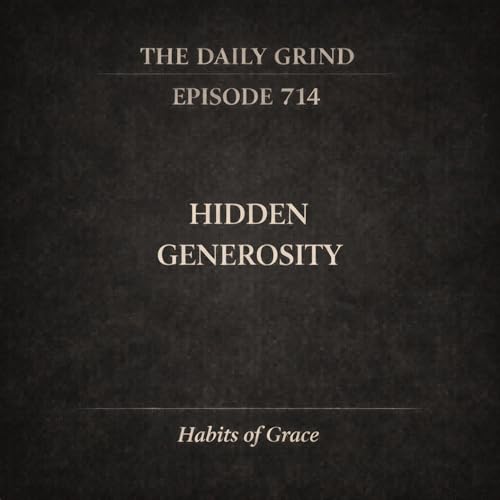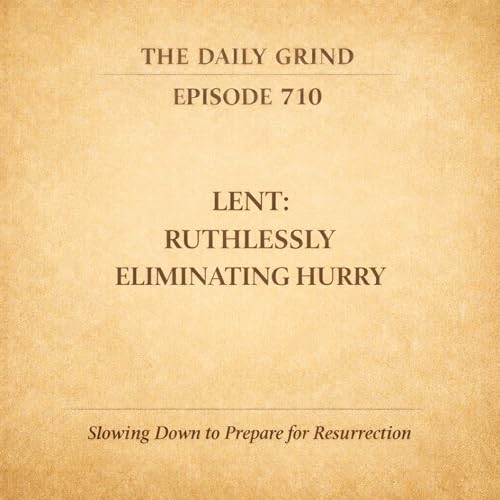Tuesday, March 3rd, Episode 717 continues The Inner Life of a Disciple series by examining Jesus’ words to the church in Revelation 2. Though the believers in Ephesus were doctrinally sound, hardworking, and discerning, they had quietly abandoned their first love. This episode explores how spiritual affection can cool even while activity increases, and how duty can slowly replace delight. Jesus’ call to “remember, repent, and return” is not condemnation but invitation. Listeners are encouraged to examine whether familiarity has dulled their wonder and whether ministry has replaced intimacy. The goal is not emotional intensity, but renewed relational attentiveness. Love must be guarded, because affection fuels lifelong faithfulness.
Email me your questions, comments, and suggestions. I'd love to hear from you! If y'all wanna talk more 'bout this, I'm all ears. Just give me a holler. You can also help by sending me your favorite trivia or dad joke(s) at spencerjd@thedailygrind.website Or respond below with comments, trivia or jokes.
 2026/03/0320 分
2026/03/0320 分 2026/03/0219 分
2026/03/0219 分 2026/02/2722 分
2026/02/2722 分 2026/02/2640 分
2026/02/2640 分 2026/02/2517 分
2026/02/2517 分 2026/02/2419 分
2026/02/2419 分 2026/02/2320 分
2026/02/2320 分 2026/02/2018 分
2026/02/2018 分
